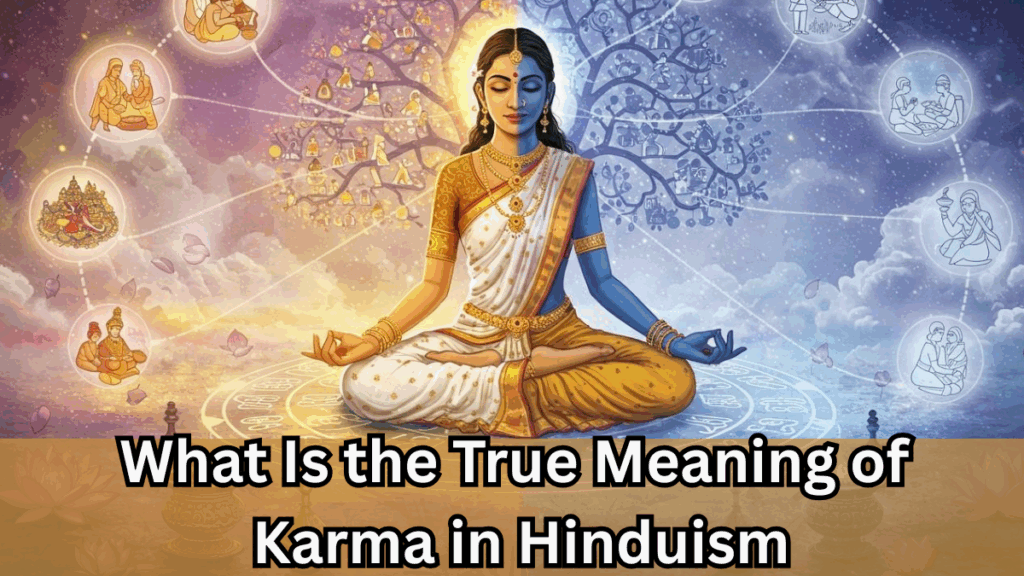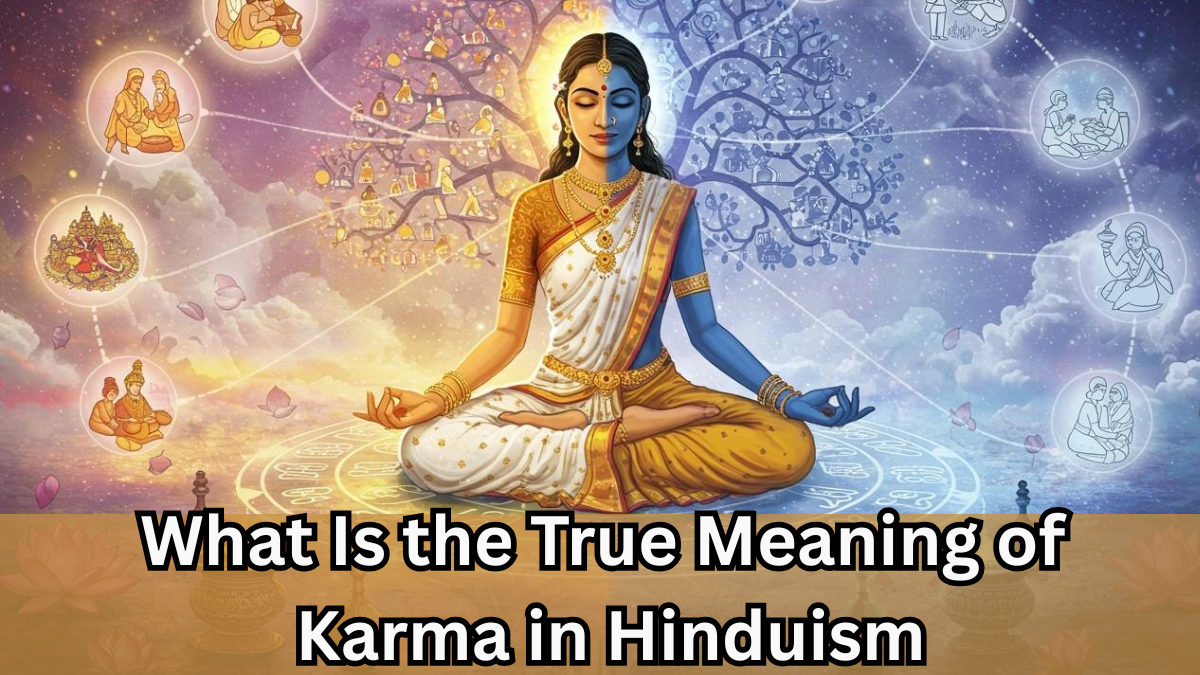When most people hear the word karma, they often think it means “what goes around comes around.” But the karma meaning in Hinduism goes much deeper. It’s not just about rewards and punishments—it’s about responsibility, intention, and the spiritual path that guides our lives.
Let’s explore karma explained in simple terms, its role in daily life, and how it shapes Hindu philosophy.

Understanding the Law of Karma
In Hinduism, karma literally means “action” or “deed.” Every thought, word, and action generates energy, which creates future consequences. This is known as the law of karma—the universal principle that governs cause and effect.
-
Good actions → Positive outcomes (peace, growth, blessings)
-
Harmful actions → Negative outcomes (suffering, obstacles, lessons to learn)
-
Neutral actions → Everyday activities that don’t carry heavy moral weight
Types of Karma in Hinduism
Not all karma is the same. Hindu scriptures classify karma into different forms depending on when and how it manifests.
| Type of Karma | Meaning |
|---|---|
| Sanchita Karma | The accumulated karma from all past lives, waiting to be experienced. |
| Prarabdha Karma | The portion of karma currently unfolding in this lifetime. |
| Agami Karma | The karma we are creating now through present actions. |
| Kriyamana Karma | Immediate effects of actions in this life that can be altered with effort. |
This classification shows that karma is not rigid fate—it can be reshaped through awareness and right living.
Karma Yoga – The Path of Selfless Action
One of the most profound ways Hinduism teaches us to deal with karma is through karma yoga. This path emphasizes:
-
Performing actions without selfish desires
-
Serving others with compassion
-
Letting go of attachment to results
-
Focusing on duty (dharma) rather than rewards
By practicing karma yoga, a person purifies the mind and moves closer to liberation (moksha).
How Karma Shapes Daily Life
Karma isn’t just a philosophical concept—it plays out in everyday life. Here’s how:
-
Relationships: The way you treat others reflects back in the harmony or conflict you experience.
-
Health & Well-being: Stressful or negative actions can manifest as physical or emotional challenges.
-
Opportunities: Good deeds often open new paths and create supportive networks.
-
Spiritual Growth: Awareness of the law of karma encourages mindful living.
FAQs on Karma in Hinduism
Q1. What is the real karma meaning in Hinduism?
Karma in Hinduism means “action,” covering not just deeds but also thoughts and intentions. It reflects the universal law of cause and effect.
Q2. Can karma be changed?
Yes. While past karma (prarabdha) must be experienced, present actions (agami and kriyamana karma) can transform future outcomes.
Q3. What is karma yoga and why is it important?
Karma yoga is the practice of selfless action, performed without attachment to results. It helps purify the heart and leads to spiritual liberation.
Q4. Is karma punishment for bad deeds?
Not exactly. The law of karma is not about punishment but about balance and learning. Negative experiences teach lessons and guide us toward better choices.
Final Thoughts
The karma meaning in Hinduism is far more than destiny—it’s about conscious living. When karma explained is understood correctly, it inspires responsibility, kindness, and mindfulness. Through selfless service, discipline, and awareness of the law of karma, one can shape a life of harmony and move closer to spiritual freedom.
Click here to learn more
